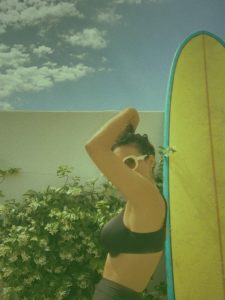
Episode 51: Meet Clara Negrel – Art Director, Graphic Designer, Illustrator, and Surfer
Clara tells her story as a young child and her fascination with the ocean. She also shares her travels and the most memorable surfing spots she’s been to.
Have you ever been in a state of flow? The feeling is so intrinsically rewarding that all the resources spent do not account for the gratification and sense of purpose it brings. Many concepts and factors need to work simultaneously to achieve flow, however, achieving that is NOT as complicated as it may sound. It comes naturally out of passion and it is possible to integrate it into our daily lives and create a positive change. That optimal and purposeful experience is what we need today in this stress-filled world.
Julia Colangelo researches primarily about flow and mindfulness and how it can create a positive impact on different levels. For years, she has been teaching many on how to find flow in both in their personal and professional life. She serves as an inspirational speaker, educator, therapist, and consultant. Julia is also an award-winning Professor of Mindfulness at Columbia University. She hosts the Flow Surfers Podcast, which aims to provide practical strategies to live with more ease and intentionality in life. Her personal life includes being a mom, a writer, and a surfer. She believes that we can all make the world a better, cleaner, and kinder place to live.
In this episode, Julia brings us deep into the concept of flow- what it is, when does it happen, how to achieve it, and how to integrate it into our life so we can release all the burnout and anxiety. She also inspires us to stretch our capacity as far as we can. There’s no time limit to the possibilities we can have and flow is the path to get us empowered. Outside the boundary of flow lurks its alternative: anxiety, depression, self-doubt, feelings of worthlessness, and all the negative feelings that make us unhappy and unfulfilled. Julia also shares how we can make an assessment of our values as opposed to just passively knowing. Getting into flow should be intentional if we are to see and feel its action. Find your flow and wake up every day lovin’ life! Don’t miss out on this week’s podcast!
03:47 The Right Time To Stretch Your Capacity
08:26 The Right Way To Learn
15:19 What Is The Flow State
20:01 The Flow Consciousness
25:04 How To Get Into Flow State
30:10 Surfing and Flow
35:49 Get Into A Unified Flow
38:33 Flow In Intention
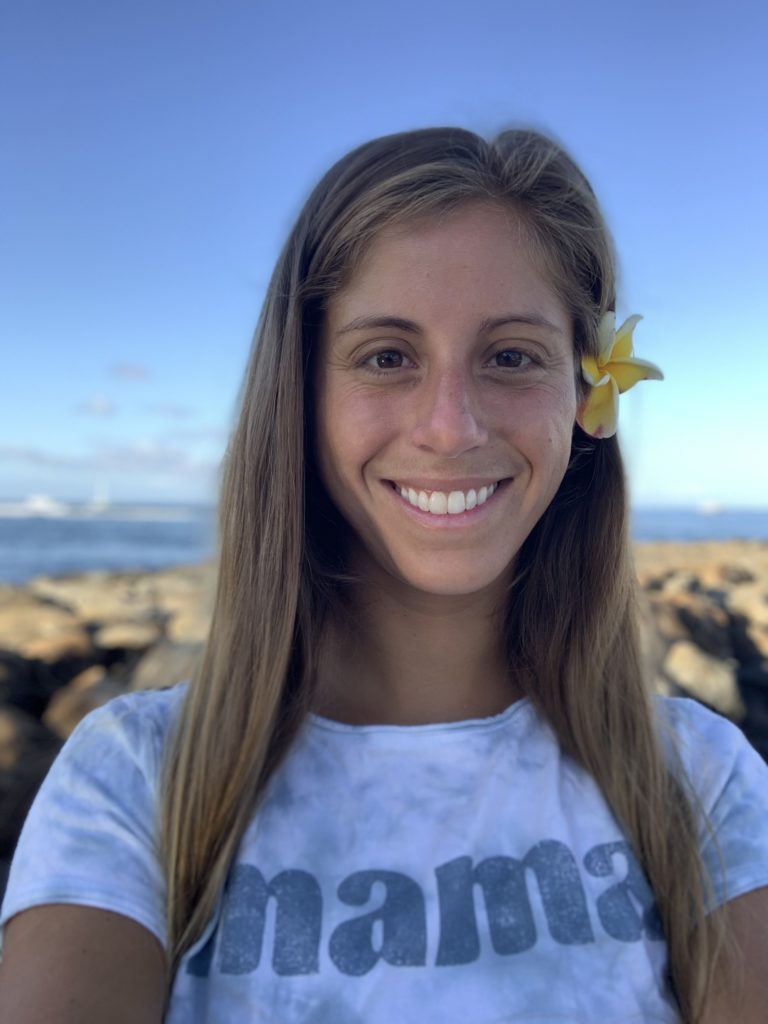
Today, I got to sit down for a conversation with Julia Colangelo. Julia is a surfer from New York and she’s also a Professor at Columbia University. She’s a therapist and a consultant for people and organizations wishing to tap into flow states for better relationships and generally appreciating life more.
“There's no wrong way to surf if you're having fun and you're smiling and connecting again with who you are in whatever that is.”
In this episode, we get to know Julia a bit better and find out what it is to be in the flow and how to get into that flow state on demand. As surfers, we can often actually get into flow state naturally when we’re in the ocean and riding that perfect wave. But in fact, this is one of our privileges, but what if we could replicate this feeling out of the water? As part of her dissertation, Julia modelize these concepts and shares her tips to live a more mindful life and tap into the flow state more often and avoid burnout. In stressful times like now, Julia delivers just the sort of things we need to hear.
I hope you enjoy this episode.
Take care, have fun, and enjoy the waves.
Ciao,
Imi
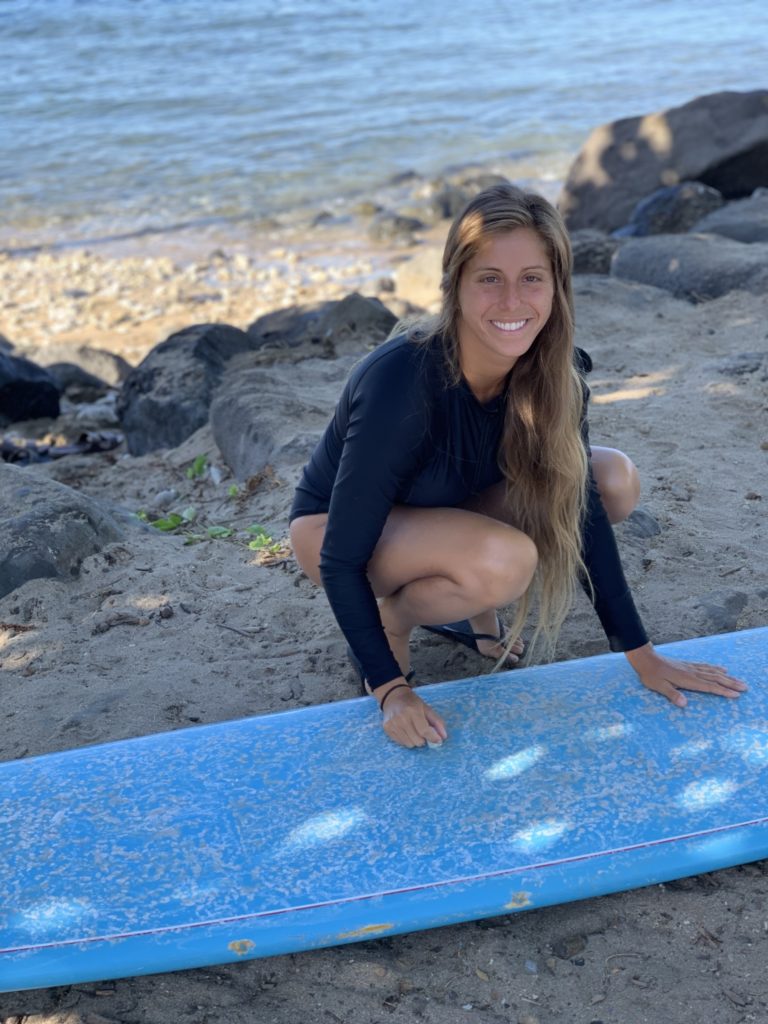

Clara tells her story as a young child and her fascination with the ocean. She also shares her travels and the most memorable surfing spots she’s been to.
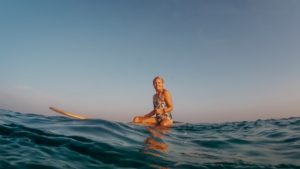
n this episode, she shares her story of joining Sea Shepherd, campaigning in Antarctica, embarking on a life-changing voyage from Plymouth to the Azores islands, collecting microplastics and analyzing data, and how her passion for surfing and nature and the oceans has led her to refocus her studies on sustainability from a scientific point of view.
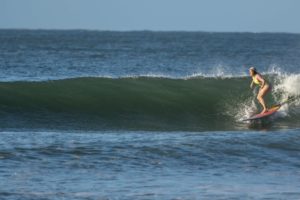
Maree Beare is the CEO of Wanngi, a healthcare app that is changing the lives of millions around the world. Maree shares her startup experience and how surfing is helping her to find balance in a fast-paced lifestyle.
“It's not too late. Let me stretch my capacity."
“There's never a right time; there's never a wrong time… if it's of interest or if it's something that is pulling at your heartstrings.”
“There's no wrong way to surf if you're having fun and you're smiling and connecting again with who you are in whatever that is.”
“Surfing is creating right a cleaner and a healthier nation and world doing those small micro-actions.”
“If we're intentional about how we recover… we'll be setting ourselves up to have a new opportunity presented to us.”
“Flow experiences are not all rainbows and butterflies. They are meant to stretch us.”
“The thing about flow is, there's never crossing something off a list. It's always stretching our capacity and that's on a small level or on a global scale.”
“It all will move in intentional time if we're connecting with ourselves with the value that we have and not trying to conform to someone else's timeframe.”
“If you're like me and you're a human that makes mistakes, just go with that and know that that's just as powerful and informative state of flow.”
The Oceanriders Podcast is a passion project and, if you like it, you can support it in a number of ways:
Number 1: Share your love for this podcast on iTunes by giving it a few stars, or a review. Better still, subscribe. Anything in this direction increases my ranking and lets more people hear about my fascinating guests and how they are busting the surfing stereotype
Number 2: Comment, and join the conversation on social media. You will find links to my social media accounts on theoceanriderspodcast.com
Alternatively, you can connect with me on:
Number 3: Join me for an episode or sponsor my podcast! Just send an email to hello@theoceanriderspodcast.com with a quick bio and I’ll take care of the rest.
Number 4: I have created an online merch shop, called the Oceanriders sShop. It has a collection of t-shirts, sweatshirts, greetings cards, and wall art for all types of budgets, so be sure to check them out on theoceanridersshop.com.
Imi Barneaud: Hey everybody, and welcome to The Oceanriders Podcast conversations with creatives, entrepreneurs, thinkers, and dreamers who also happen to be surfers. My name’s Imi, and I am your host.
So how are you doing? How’s lockdown treating you? Have you managed to get back in the water? I’m really stoked about being behind the mic again and joining you for another thought provoking conversation. I can’t thank you enough for tuning into these conversations every two weeks, your feedback is priceless and it’s what’s keeping me going in my passion project. In fact, I can’t believe it’s episode 50. It seems like a couple of months ago that I actually started this podcast, but it’s been almost 18 months now, I can’t believe it. Anyway, I really hope I’m delivering up to your expectations. And if you do have any suggestions, just send them in. You can reach out to me at hello@theoceanriderspodcast.com, or you can get a hold of me on my socials at theoceanriderspodcast on Instagram, at ImiPodcast on Twitter, and at theoceanriderspodcast on Facebook.
By the way, you don’t have to write this down as it’s all in the show notes on your phone. I’m often a bit reluctant to self promote my podcast in these intros, but I read a quote today saying, “Ask, and you shall receive.” So here I go. If you like this podcast, you can support it in a number of ways. First of all, subscribe on iTunes, Apple Podcasts, and Spotify. All you have to do is hit the subscribe button and my next episodes will download automatically onto your app. Secondly, you can follow me on social media, check links out in the show notes. And last but not least, you can support my podcast by purchasing some merch, head over to theoceanridersshop.com where you’ll find a lovely selection of slow fashion t-shirts for surfers. They’re all made to order so they do take a while to get delivered, but they’re worth the wait, and so soft and comfy that you’ll regret not ordering. In my shop, you can also find a selection of greeting cards and wall art, so be sure to have a look. Not only will the profits from my merch sales help me cover my hosting and editing fees, but 1% of the sales will be put aside to support NGOs, as I’m a member of 1% for the planet. Now that the self promotion is out of the way, I can focus on my guests.
Today, I got to sit down for conversation with Julia Colangelo. Julia is a surfer from New York, and she’s also a professor at Columbia University. She’s a therapist and a consultant for people and organizations wishing to tap into flow states for better relationships and generally appreciating life more. In this episode, get to know Julia a bit better and find out what it is to be in the flow and how to get into that flow state on demand. As surfers, we can often actually get into flow state naturally when we’re in the ocean and riding that perfect wave. But in fact, this is one of our privileges, but what if we could replicate this feeding out of the water? As part of a dissertation, Julia models these concepts and shares her tips to live a more mindful life and tap into the flow state more often and avoid burnout. In stressful times like now, Julia delivers just the sort of things we need to hear. So I’ll let Julia do the talking.
So without further ado, please welcome Julian Colangelo.
Hey, Julia, It’s so nice to see you, and welcome to The Oceanriders Podcast. How are you today?
Julia Colangelo: I’m doing great. Thank you so much.
Imi Barneaud: So Julia, we’ve been running around after each other for awhile, and I just wondered where you are right now.
Julia Colangelo: Yes. So I am based in Maui right now, in Hawaii.
Imi Barneaud: Let’s say, lucky.
Julia Colangelo: Yes, I’m grateful every day.
Imi Barneaud: Wow. Well, but you usually work from where?
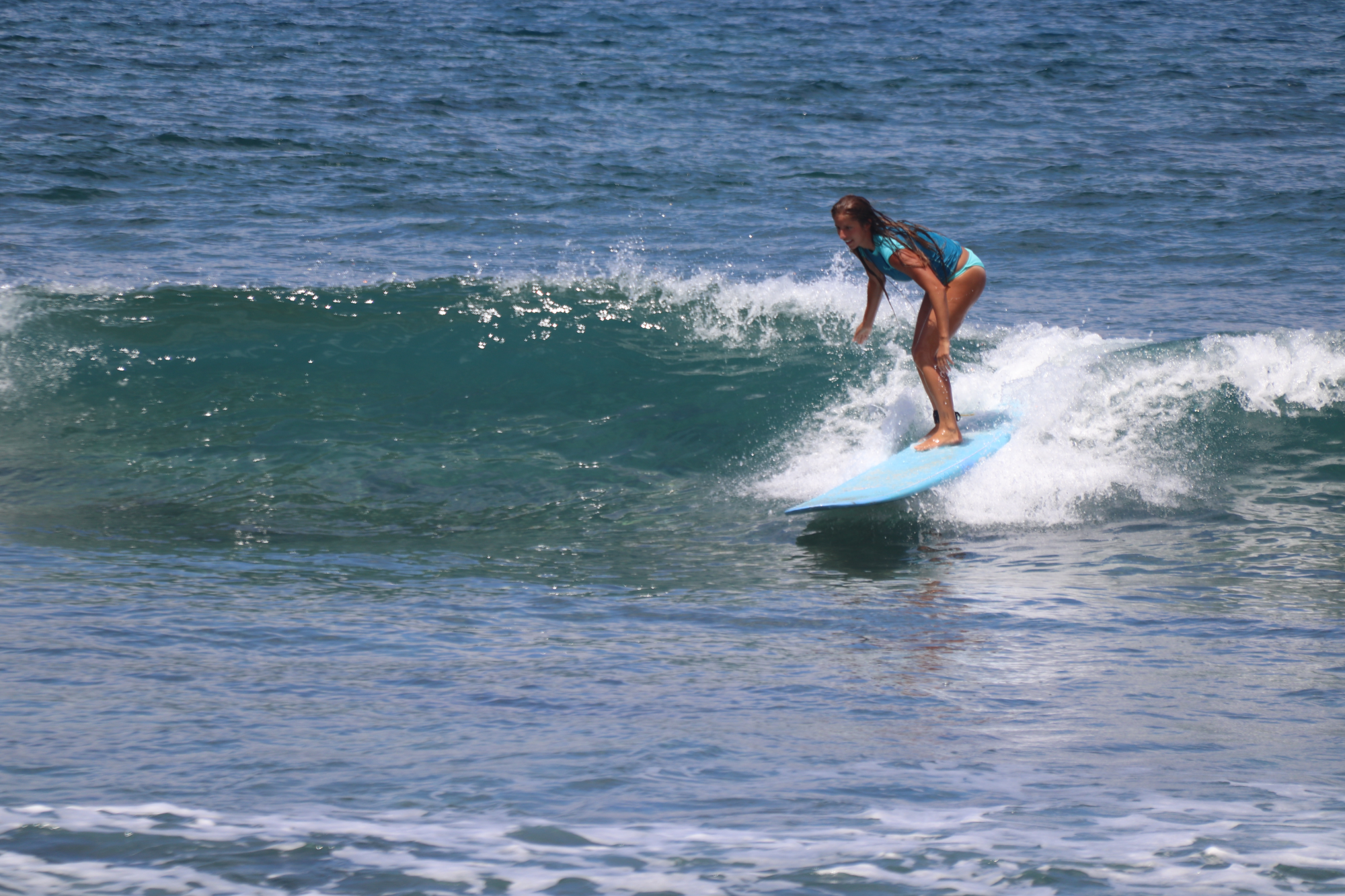
Julia Colangelo: I’m usually based in New York City. And what’s interesting is, almost three months ago when I came here for a work event and connecting with some other ocean women and ocean lovers, it just evolved into a thing. And then of course, what happened in the world happened, and we’ve been living here short term, and now rather long term. So very happily, very gratefully and safely.
Imi Barneaud: Wow. This is extraordinarily kind of stranded on Maui, but it couldn’t be worth a place to stay to be stranded, I guess.
Julia Colangelo: I could agree.
Imi Barneaud: I guess for the listeners, do you think you could introduce yourself and tell us in what way you consider yourself as an ocean rider?
Julia Colangelo: Of course, I’d be happy to. So I’ve been a therapist for about 10 years. I have a small private practice online now. And what’s been interesting is I have always been an ocean lover and ocean rider, but there has always been a hesitation from my end to take the risk into surfing or more adventurous water sports. So through my work, and research, and as an educator of flow and mindfulness, I’ve stripped my own capacity, and I’m a big supporter of learning to surf later in life. If you are interested or curious about my path I chose, I’ve always been a swimmer and a water lover. There’s something that’s changed in my 20’s where I took that risk and I said: “It’s not too late. Let me stretch my capacity.” And in doing so, I’ve now been surfing, I think around 10 years, and challenging myself in the water. And I really connect with the themes of mindfulness and flow, and how they overlap with being a surfer, being someone who’s a forever beginner, who’s always taking a new risk and challenge. And it’s just been this new chapter in life that I’m grateful to have. And I’m just always sharing about that because I think around needing to learn certain challenging activities earlier in life. And for me, it’s really about, there’s never a right time, there’s never a wrong time. And taking that risk if it’s of interest or if it’s something that just is pulling at your heartstrings, which for me, it had been. And my dad was a surfer and he jokes that he would invite me, but I would be making no friendship bracelets on the beach, or be swimming, or boogie boarding, but that I wasn’t, there was this nervousness about trying it. So I’m sort of a person I leaned in, and now, I consider myself, I tend to be a longboarder. So grateful to forever learn about the ocean in that way.
“It's not too late. Let me stretch my capacity."
“There's never a right time; there's never a wrong time… if it's of interest or if it's something that is pulling at your heartstrings.”
Imi Barneaud: That’s wonderful. So did you grow up by the beach?
Julia Colangelo: I grew up about 45 minutes away, and I grew up in New Jersey. And [inaudible] New Jersey in the States is, going to the Jersey shore, surfing, swimming, just spending time, a day at the beach where typically picnicking, playing, just being connected to the local beaches. And that’s something I so enjoyed and still enjoy now. And I think what’s magical is just being close enough to go on a whim down to the ocean and visit it. And I grew up a lot also going in the winter time, walking on the beach, looking for sea glass, it’s still one of my favorite activities. Just as much as the thing is with an element of the ocean or in water, or just observing and connecting with the water from afar.

Imi Barneaud: That’s lovely. And I guess you’re saying that the fact that you actually took that risk really empowered you, do you feel that that was the case?
Julia Colangelo: It really did. And it was scary. The way our brains work is that the older we get, we become more rigid often in our ways of thinking, and different patterns that we experience and embody. And I think for me, taking a risk, whenever when you drop a pebble and create a new ripple in our brains, in our lives, in our bodies, there’s this excitement and surge of excitement and empowerment to use your word. And oftentimes, and most of the time off for the positive. And we can experience this surge of excitement. We tend to see things a bit differently. And we then on a deeper level, and this happens for me certainly is we really connect with our values in a deeper way. And we have that feeling of, wow, I’m living in purpose. This is my direction, and moving with momentum and that’s what happened. And it happened, I’ll tell you, it happened the first time I surfed. It just happened, and I wasn’t good. I always say you learn just as much from a wipe out from catching that great wave, and there’s no wrong way to surf if you’re having fun. And if you’re smiling and connecting again with who you are in whatever that is.
“There's no wrong way to surf if you're having fun and you're smiling and connecting again with who you are in whatever that is.”
Imi Barneaud: Yeah. Yeah. That’s lovely. So how did he learn to surf? Was it your dad that taught you, or did he take courses?
Julia Colangelo: So I took a lesson right here about four blocks from where I’m staying right now.
Imi Barneaud: Really?
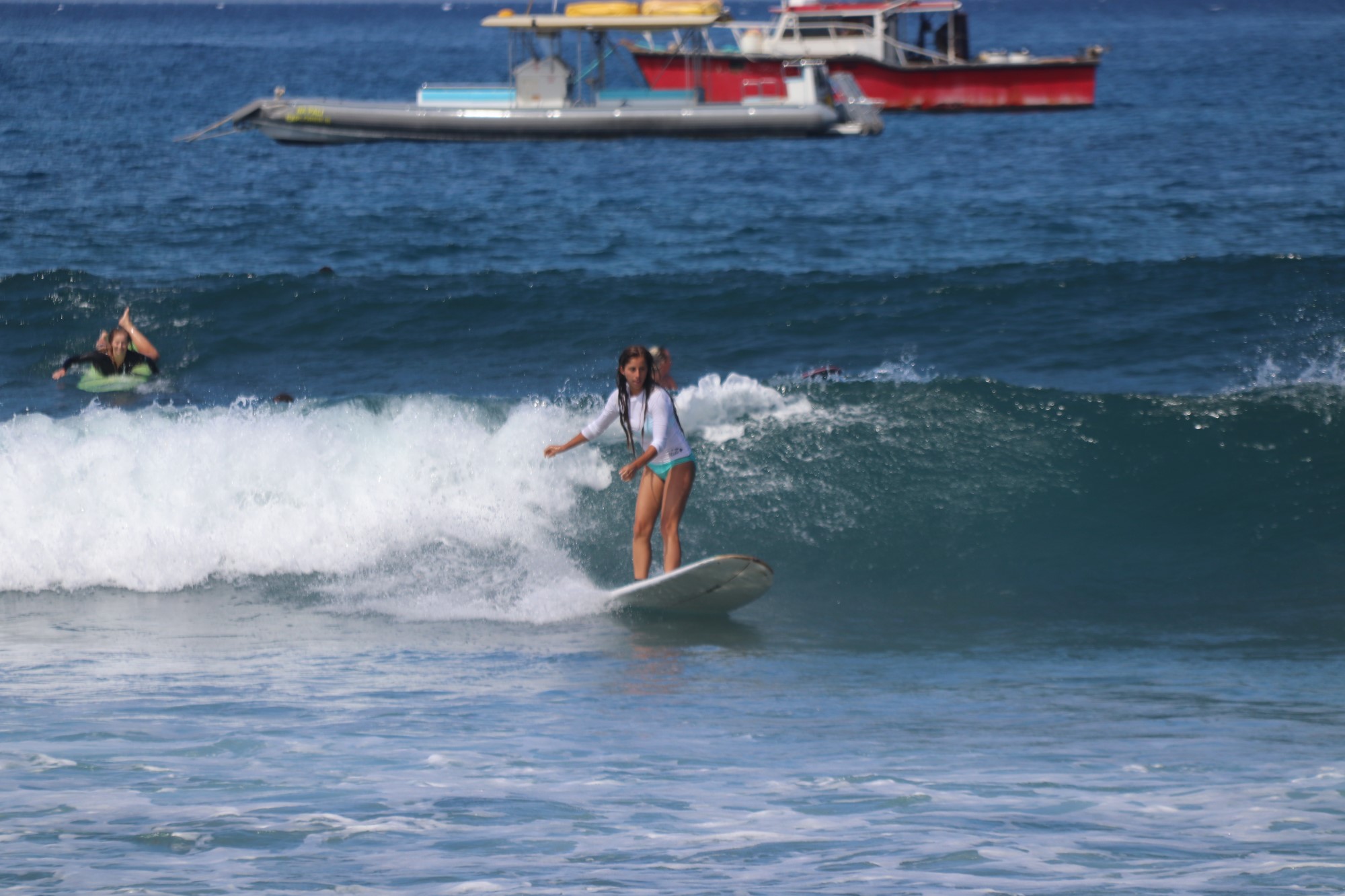
Julia Colangelo: Yes. And looking back, there was a moment I hopped on a surfboard and I caught a wave, on Easter Island was actually the first time I ever laid on a surfboard. I was 18. I spent a year abroad in Chile, and had — to Easter Island. There were surfers, they lent us their boards. I caught a wave, I stood up, I fell right away. And I said: “I want more of this, but maybe it’s not for me.” So it was a couple of years later, maybe four or five years later, and came here I said: “I’m going to humble myself in my 20’s to take a lesson.” Have a private lesson, the instructors are people that I’m formally with now, here, that are in the area. And it was part of that humbling myself to say, I’m a learner, I’m totally new, and it paid off. So I think that just having that, those different elements of encouragement of saying, again, here’s what you can try. You can also try it your way, and that ripples, I took two lessons from two different instructors over two days and I was hooked. I didn’t stop. I didn’t stop after that. Of course, in New Jersey and in New York, surfing requires a very thick wetsuit and a lot of preparation. And driving, it’s not as easy as just hopping in the water on a whim, which is what we’re able to do here. So there are different elements. So certainly back [inaudible] but it’s more intense when I go. And here, it’s everyday, but perhaps for three or four waves and then switching out with my partner, we’re taking turns with our daughter on the beach.
Imi Barneaud: That was wonderful. Sorry, kind of go back to your job as a therapist.
Julia Colangelo: Yes.
Imi Barneaud: So how did actually becoming a therapist become a motivation for you?
Julia Colangelo: Yes, so I’ve certainly grown up, I had exposure to different individuals in so many different professions that I always just had this idea to serve others. And I joke that, I knew at a very young age that I wanted to be a therapist because I had this vision of therapists as just people and social workers as giving and being just a presence. So I knew at a quite young age, at five, that I wanted to be in this role. And I ended up going right after my gap year, right into college, I’m a therapist right into a master’s program. And just recently, very recently I completed my doctorate. So I’ve been in this profession for over 10 years, but I’ve really felt connected to my professional purpose for my lifetime. It feels like, and what’s interesting is that each layer, similar to therapy, another layer of the onion is peeled back and showed more of me, which is where I’m at. I’m in my perfection right now as a small business owner and as a solopreneur. And what’s began as a typical social worker and therapist, working with individuals has now evolved into working as a [inaudible] consulting with different companies, with different entrepreneurs, and founders, and on different macro, and mezzo levels in the work that I do that really primarily is based in mindfulness. So integrating these elements that have been in some ways reserved for elite athletes or individuals with certain privileges or access in my research and in my work, trying to adapt to people to create a positive impact. And if we’re able to, as sort of humans who make mistakes, white access will able do then you’ve all been, again, create these ripples for positive change. So intersected with surfing for me is creating right a cleaner and a healthier nation world, doing those small micro actions. Creating similar to this connection with you is like creating a connection even virtually or over a podcast can create a positive flow. And just what people are hearing, how people are connecting with their purpose, it’s similar to meeting a nice person in the water when we’re surfing. It doesn’t happen maybe all the time, but when it happens, we want to hold onto it. So I like to, the work that I do now is more on the obligation level. I do this consulting, some coaching, really trying to make these tools that sensible. And again, create positive ripples and positive impact so that we all have that deeper sense of alignment, and we’re not always yearning, yearning, yearning for something that might not actually be what we want, or what we’re needing in our lives.
“Surfing is creating right a cleaner and a healthier nation and world doing those small micro-actions.”
Imi Barneaud: Right. Right. So there’s some keywords that you’ve said here, but I’m trying to figure it out, and maybe we can explain to the listeners what exactly FLOW is.
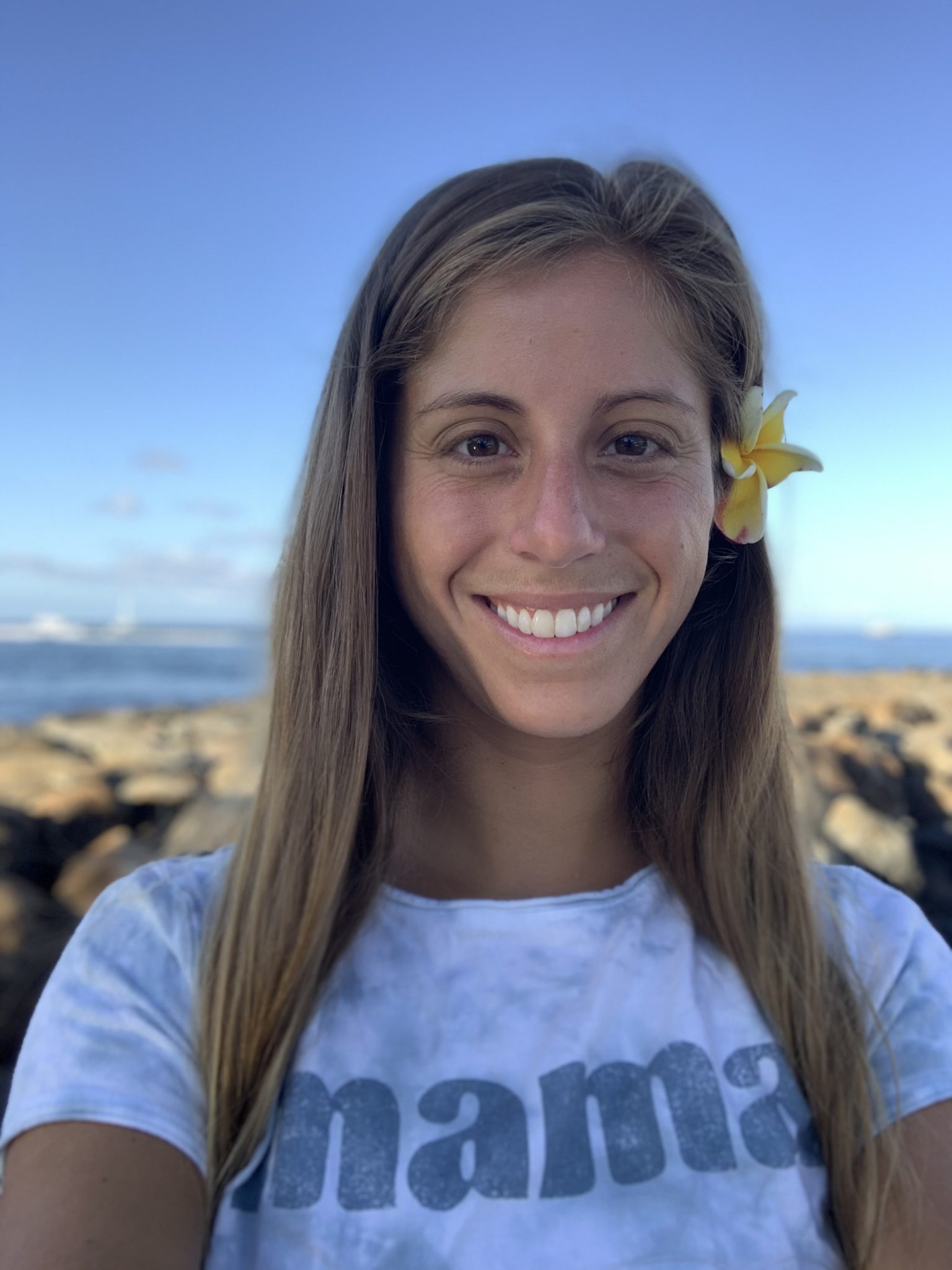
Julia Colangelo: Yes. So I love discussing flow because, similar to surfing, there’s no right or wrong definition. The term with Mihaly Csikszentmihalyi’s (Me-high Cheek-sent-me-high) is the psychologist who has been researching flow for over 50 years. He coined the term flow, and it’s an ideally optimal level of performance where you’re really integrating your skill level and requiring a certain amount of time, as well as a level of difficulty. And this is where we compare it to having a goal and then we achieve it, or something on a list that we want to do learning to surf, we check it off. Flow is different because we’re constantly up leveling on challenging and flipping our own capacity. So while that formal definition, there are many more relatable definitions of this experience of momentum, experiencing, or emerging of action and awareness, a sense of alignment in our purpose instead of a flow state, which we certainly might experience that rush when we’re surfing, when we’re achieving something momentous in our professional or personal identities. Flow can be this experience for things just line up in synchronicity and to make sense even just this connection here where we start to make this connection and then something bigger and beautiful can evolve from this. I always encourage people to adapt term flow to their own lives, and how they feel it fits in knowing that it doesn’t have to be this isolated state that we’re striking too, but it can be many of those states similar to waves. We can yearn and really aspire to these easier waves that are gentler, that are equally momentous in the long run, but might take a little bit longer, might take a certain intentionality around our daily actions, around new pine, around ourselves to others, and taking those actions to just moving the needle bit by bit and equally transformative in the long run. Actually, if we’re being able to be reflective of our mindfulness and be aware of saying, Oh, yes, this is the direction I want to move towards my goals, and move in my life, and my purpose, and my relationships, and in my business.
Imi Barneaud: Wow. So how would you say, because there’s a lot of information there and I’m trying to figure it all out, but you’re saying this synchronicity, so how could flow potentially provoke synchronicity?
Julia Colangelo: So the really interesting aspect from a physics standpoint of flow is when we experience flow in any instance, for surfing, in a professional experience, we have these micro flow experiences where we’re saying in a conversation, while that is heading in the right direction. I’m feeling some energy, you’re feeling some energy, or when we catch that beautiful wave and we’re like, Oh, my gosh, everything in life makes sense even just for that fleeting moment. So when we have one of those experiences, it will naturally lead to more of those experiences. It comes down to us being aware of our choices and the opportunities to see and experience more flow. For example, we can take the time here. I came here for our vacation and for a few different work opportunities and saw the opportunity to say, yes, for the very short term to staying the synchronicity while we’re here, we have a suitcase, we have enough to get by, and we have access to resources. And then the synchronicity was saying, let me say, yes, to this opportunity in front of me instead of what a lot of us do. And what we see outside of our experiences of flow is maybe avoidance, fear, heightened anxiety, or the alternative of staying outside of the flow state, which is boredom, apathy, again, fearful to make a change or say yes to a new opportunity. So saying, yes, to those micro experiences more often leads to this unified flow, or some people refer to it as flow consciousness where these different experiences combine, and there’s this greater sense of living in flow on a daily basis.
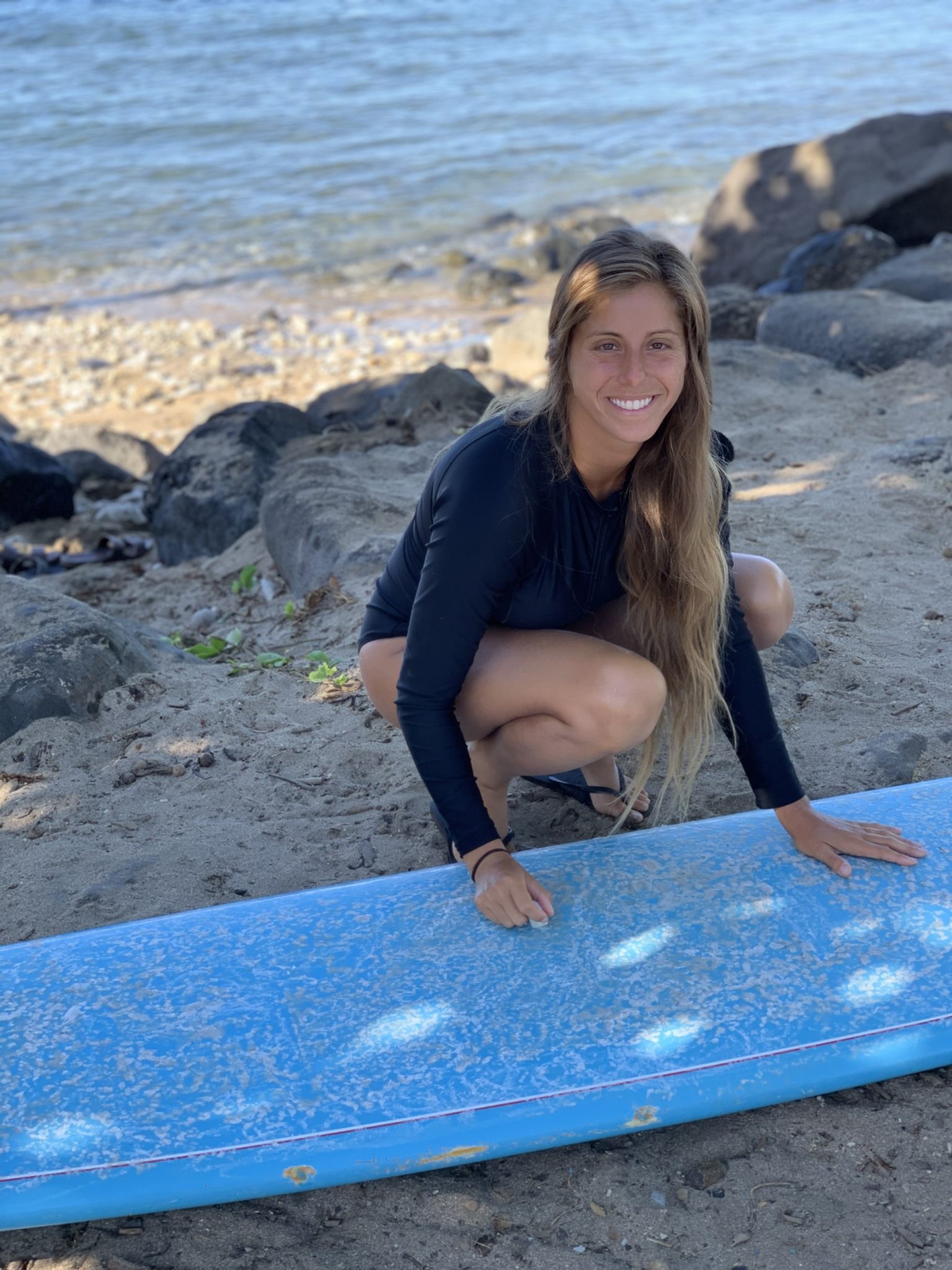
Again, things make sense more often. And the domino effect of that is that we experience more flow. We have this sense of alignment in all that we’re doing, and that’s more to come back to where a career can be or where personal experience could be. We, things just line up and it takes action. It takes consistency, having those, Oh, no, moments, and then resetting. What happens in those Oh, no moments is that we come back. And instead of saying, well, I’m going to watch TV for a week. It’s saying, I’ll be intentional about this recovery, about this reset, about understanding what happened, what may have gone not the way that I desired, maybe doing something like a mindfulness practice, sitting with the pain, sitting with the frustration. We’re hearing that a lot with how people are relating to stress. And understanding that if we’re intentional about, how we recover, and how we avoid falling down a rabbit hole that will take that much longer to experience even a bit of a micro flow experience, then we’ll be actually setting ourselves up to have a new opportunity presented to us, and having our mindset in a positive, just set up in a positive way to accept. And sometimes slow experiences are not right. They’re not all rainbows and butterflies. They are meant to stretch us. They’re meant to be those difficult conversations that evolve into maybe the conversation that will change our entire life’s path. Maybe the surf experience will lead us to become someone who serves on a regular basis, or a parent, or meet the person we’re supposed to meet for a personal or professional connection that might last a lifetime.
“If we're intentional about how we recover… we'll be setting ourselves up to have a new opportunity presented to us.”
“Flow experiences are not all rainbows and butterflies. They are meant to stretch us.”
Imi Barneaud: Wow. That’s really interesting. Actually, I always imagined flow to be like being super focused for work, and like starting a project, and then looking, and watch like three hours have gone by and you just haven’t noticed it go by. But I didn’t realize that you could actually, that flow also occurred in personal relations and with other people. That’s really interesting.
Julia Colangelo: And that’s the great thing, that there’s no one definition, and it evolves depending on where we’re at in the moment in the day. And certainly those micro flow experiences where we are focused, lose track of time and space are effective. That’s a lot of your work and experience. The great thing about that is when we have access to that, we have the ability to experience it more and it impacts our lives, the environment in a positive way around us, and our relationships in a meaningful way that we’d like it. And when we think about flowy, like to think about tunnels, when we think of a staircase, and there’s not just that one way to access flow, there are many things that will lead to flow. Maybe meditation leads to experience flow, and then we’re in that focused zone. And then afterwards, instead of again, doing something that takes us out of that, that’s an extreme opposite way. We’re able to slip it, marinate in that energy, and be kinder to people being more innovative in our thinking in the long term because we were able to give ourselves that experience of flow in the morning, or before the kids woke up, or before a very intense or intimidating meeting at work. And that is what I care about because that leads us to be kinder more with each other, care about the environment, see that trash on the beach, pick it up instead of saying “I’m in a rush,” and those small actions. That’s what matters in the world. That’s what leads us to have meaningful relationships to connect. And I think we’re living in a world of a lot of disconnection in general and these micro experiences lead us to be at our optimal level of experience, surf outstanding, huge waves that we can’t even fathom. We surf, not in my case, but for the professionals, and just experiencing things on this deeper, more profound level.
Imi Barneaud: That’s pretty amazing. And I guess, how would you do, do you use special techniques to actually achieve flow? I mean, is it a personal thing, or is it something that you can generalize? Did you study that in your doctorate?

Julia Colangelo: Yes, I did. So I studied mindfulness flow as a way to increase happiness and create creative thinking and innovation specifically for those experiencing or have experienced burnout, or compassion in a helping profession. And why did I care about this specifically? When you’re doing research, you have to very much narrow the focus. And then again, it can be adapted into many settings because I found that those, doing the very critical work of helping those that are most vulnerable, experiencing stress, who have experienced racism, sexism, hearing so much are often not the ones that are able to experience these levels of flow or creative thinking. Because when we think of the hierarchy of needs, people tend to meet stress again and again, happy scenario [inaudible] they can’t even achieve their basic needs, their physiological needs so they can’t experience innovative thinking. And that applies both to individuals as well as helping professionals who support those individuals who are stretched [inaudible] with medics, and nurses, and social workers on the front lines who are not able to rest or breathe. So then it’s difficult to think innovatively of finding different cures, different to really solve critical work world problems. So that was my research base. And what I was able to create was a practice manual to make, like you said, general suggestions. I created 14 different practice needs. I would say that it is personal, which is so awesome. We can adapt any script, any practice for ourselves. Some of the suggestions I always encourage are really starting with where you’re at and assessing your own values. This might sound like something we might already know about ourselves, but really making this an intentional action to assess our values. Because sometimes, our values are telling us to be creative, to think innovatively on a global scale. But other times, it might be acts of service such as picking up trash, or that you really want to spend more time with our family. And understanding, doing an affinity mapping of our own values can be really helpful in making sure that we create our flow experiences to align with who we are and what we care about.
The next is really setting up structure, and routine, and also making sure that you schedule in pockets of non routine and non structure to really expand how you’re thinking, how you’re feeling, how you’re thinking about the world. So this might mean that, everyday, if you wake up at 5:00 AM and you have a certain set goal, then you are able to set your path. You’re able to think through that, solve some problems, be really productive from 5:00 AM to 7:00 AM before the kid wakes up. But maybe on a Sunday, you really reset in a creative way. Maybe that means a different meditation. Maybe that means eating a different food. Right now, I’m very into activating my senses. My sense of taste in a different way by trying out different foods and different flavors that I might not normally. And that creates some different flow experiences for me, in a sense perspective. And then it ripples into the work.
Imi Barneaud: Wow.
Julia Colangelo: I also always encourage people to think about how they can optimize what works for them. And the thing about creating more flow experiences as we repeat, what’s worked in the past. Even when we think of surfing, we think of, how did we catch that perfect wave? What did we do? And often people are like, it was luck, but we really want to think about, did you wake up at a certain time? What did you actually consume that day, the night before, what did you do that night before that led to that profound sleep, or led to that brief sleep and allowed you to connect with the ocean. Connect with who you are in the water, and allow you to release any stress or tension you had and just move with the water in the way that you were meant to.
Imi Barneaud: Wow. Yeah. That figures out. That’s really interesting actually. And to actually trace back your actions before you got to that flow state is really good advice. I guess that changes the whole perspective.
Julia Colangelo: And it makes us our own researchers, which is cool. So for me, it means noticing those small, similar to how we have these profound transformations in our lives, it’s not usually the people closest to us, it’s often these loose connections, these loose ties we interact with, same with experiencing more flow, or experiencing this momentous connection with water. It’s these little moments that, what were you doing? If we enter the water, and we have a really awesome conversation for a moment, or before I had children, I would guarantee myself, promise myself to stroke the water and connect with the ocean. Thank the ocean, meditate for 30 minutes before I even went for a wave. I don’t have that privilege right now, but I do that for a moment. I do that before entering the water, watching, connecting with the ocean and with gratitude. Being kind to people, always giving people the benefit of the doubt in the water, if there’s some tension, or if there’s some hustle, and that generates an ability for me to connect and usually that leads to better waves that are energy around me in the water. And again, I surf better. I’m less self conscious, our inner critic slips away, we’re not worried about, Oh, are people thinking that I’m not the best surfer? Or that this board I have isn’t as nice as theirs? We’re not worrying about any of that. We’re thrust into the present moment. We’re connecting with our true essence. And again, the ripple from that is we’re kinder. We’re able to share the stoke with the people around us.
Like yesterday in the water, I raised my arms up in the water after an awesome wave, and two people around me were like, yeah. And I just reflected, I said: “Why don’t we share that stoke more? Why don’t we catch that beautiful wave and pretend like, yeah, that was no big deal onto the next. Why don’t we just celebrate that?” And they were like: “Yes.” If we catch one wave, and that’s the lesson my dad always taught me about. Because sometimes I’ll say: “I only got a few waves.” And he’s like: “Back in the day, you couldn’t predict what the conditions would be. You’d be lucky to get one wave.” He shared that when I started out over the last five years, specifically as I dove deep into my research even more so I’ve just been able to prioritize that. And even some days, let’s be honest, we’ve had all out and there are no waves. But connecting with the water is enough to create some and generate some flow. Again, not in this heightened optimal state, but this unified flow we’re connecting with our values. So if you’re someone who can’t catch a wave everyday, most of the time just connecting with the water can generate flow, and can generate more positivity. And ideally write more compassion inward, self-compassion as well as outward to our communities and to those around us.
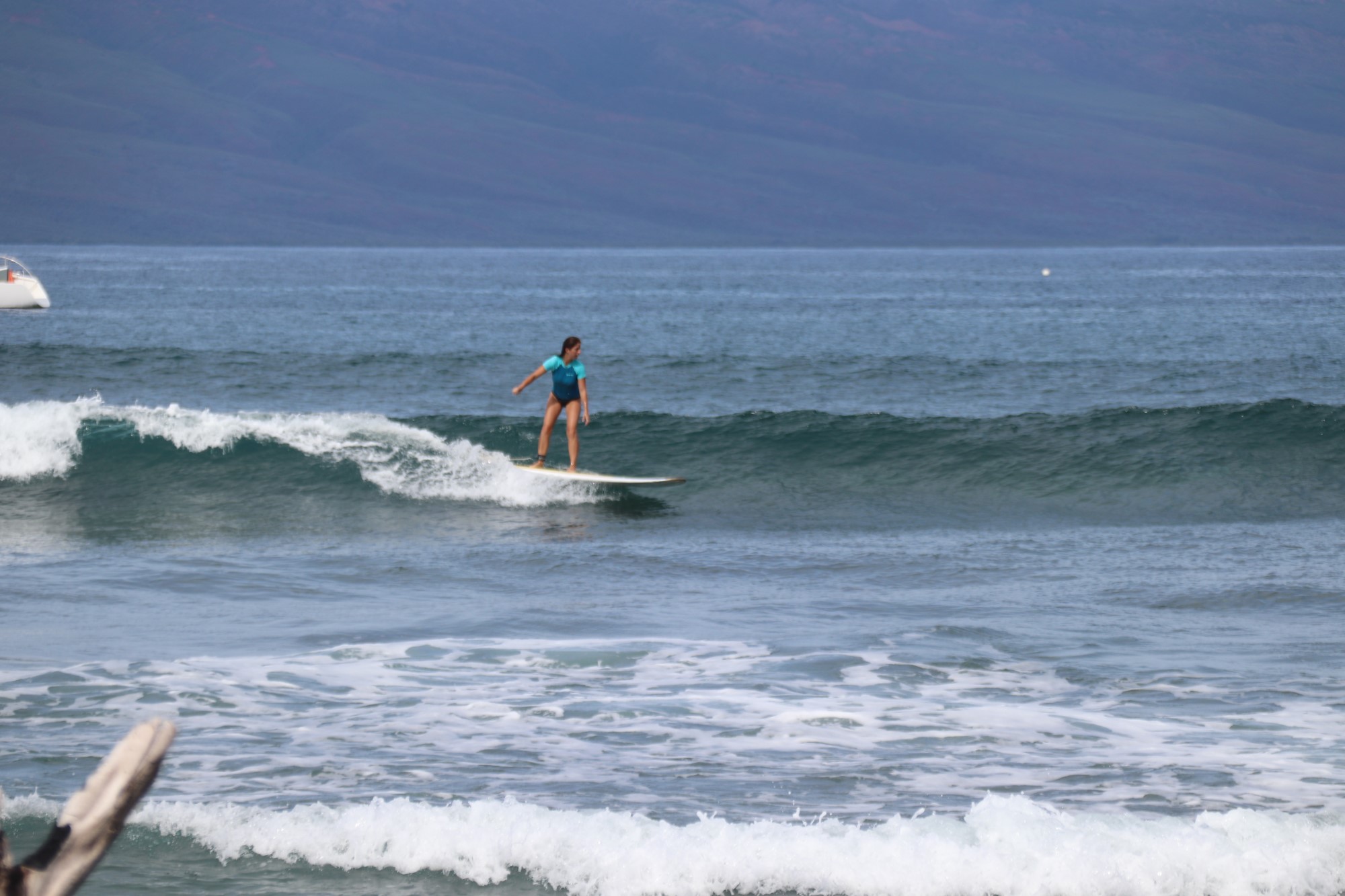
Imi Barneaud: Yeah. That’s lovely actually. And it’s true. It’s definitely true for me because I surf in the Mediterranean, so there aren’t waves everyday. So yeah, when you get in the water, you’re never sure if you’re going to get any waves, anyway kind of thing. That’s really really interesting. And what have been your client’s biggest preoccupations, for example, in this really special moment in time during the COVID-19 outbreak, have you been able to help them in any way to actually relieve their stress and things like that?
Julia Colangelo: Yes. So I think that the biggest, there are a few big myths and one of them is that we have to use this time to write a book, or be super, super productive. And a lot of people think, and I don’t blame you, I want to do that too. And a lot of us are moving the needle, but I just want to remind us of the human experience. There is no, again, we started this conversation, there’s no right or wrong way, or timeline for anything. And the thing about flow is there’s never crossing something off a list, it’s always stretching our capacity and that’s on a small level or on a global scale. So during this stressful time, and my training as a therapist is from a stress reduction, shorter term brief approach, integrating cognitive behavioral therapy, as well as relational therapy. So I think we really want to zero in on how we can just make the present moment as bearable as possible. And from my training, from the work that I do and my philosophy, I’m certainly one to encourage optimizing time for creativity, for productivity. But for a lot of us, this is a time to rest, to connect with ourselves. And that doesn’t always look like writing a book. That means being kind to ourselves, and consuming different food, connecting with the people around us. Or if we’re in isolation and not with anyone, connecting with what it feels to try to — by being social online, which is very uncomfortable for many of us, and understanding our boundaries in a different way when we’re adapting. Depending on when people are listening to this, there will be a new sense of our schedules of normal. And we want to think about who we want to be in that moment versus who we were before. And that’s where the unified flow, the flow consciousness where flow can trickle into different areas a lot of our life, and our identity really comes in where we’re thinking about how we can adapt? However we manage stress now into how we’ll function in the future.
And for people who are really stressed and overwhelmed right now, my tip is similar to experiencing more flow, looking back at another stressful time in your life. What did you do before, during, and after that, that you can apply to right now. And if it was isolated and kind of living in a cocoon, do that, lean on that, that’s one of your strengths. Don’t feel like you have to conform to what other people are saying. For example, like many of us doing all of these Zoom meetings very quickly, all of us went into quarantine. And I realized that I don’t tend to be someone who socializes every single day. So why would I suddenly turn that on for myself when that’s not part of my personality? If I was 10, I tend to be someone who does that once a week, maybe twice a week at most, sometimes twice a month. So now, I’ve gotten into a flow where I really just adapt what I did. And my typical identity into this time where we’re all still in state home order. And then understanding if that works for you, and then adapting that thereafter.
“The thing about flow is, there's never crossing something off a list. It's always stretching our capacity and that's on a small level or on a global scale.”
Imi Barneaud: Yeah, that’s really good advice. I like that. I live with the fact that I don’t have to feel obliged to write a book course that has to be super hundred percent everywhere. That’s really important.
Julia Colangelo: And yes, and the self compassion comes in that. If we’re kind to ourselves about not writing the book or not being as productive. What’s amazing, and what many of us see is that we end up doing certain actions that will lead to that on a different timeline, perhaps. And a lot of my themes right now for myself, and I think for the people that I work with are giving us ourselves grace and kindness, because our timelines are adjusted. So profoundly for me, months, years off, whether it’s adventure, travel, certain milestones, and allowing space to grieve those losses of the good and the bad, as well as understanding that when we give ourselves that grace, there isn’t really a timeline. It’s never too late to surf, it’s never too late to start that book, to start another project, that all will move intentional time if we’re connecting with ourselves and value what we have, and not praying to conform to someone else’s timeframe.
“It all will move in intentional time if we're connecting with ourselves with the value that we have and not trying to conform to someone else's timeframe.”
Imi Barneaud: That’s really interesting. And actually, I must be in a flow state because I’ve just realized, just looked at the time, but it’s always time for you to move on to a new appointment. So I guess we’ll try to wrap things up, but I just wondered if you had any books to advise to the listeners, or favorite quotes that would put us on the right track to achieve flow state.
Julia Colangelo: Oh, great question. So I always recommend it for someone interested in diving deeper into flow state, starting with foundational texts. So Flow by Mihaly Csikszentmihalyi, Creativity by Mihaly Csikszentmihalyi for any innovators. And I think that starting with the foundational pack, just always useful and powerful. There are a lot of great writings online as well. And I’ll be releasing a project soon that I’ll be happy to share about. It doesn’t have a title yet, but I’ll keep you posted. And I think my encouragement when you’re reading and learning is to just really try to adapt the practice and make them unique to you, it’s easy to think that we’re all going to want to be a pro athlete. And if that’s you, that’s amazing and keep at it. But if it’s not you, if you’re like me, and you’re a human that makes mistakes, just go with that and know that that’s just as powerful and informative a state of flow. And again, a way of living in flow as anything else, and that there’s no competition, there’s no finish line in flow or in life in general, there’s no specific timeline, we’re all moving and we’re all doing our best.
“If you're like me and you're a human that makes mistakes, just go with that and know that that's just as powerful and informative state of flow.”
Imi Barneaud: Wow. That’s great. And maybe you could remind your socials and your website so that we can actually connect with you after the podcast.
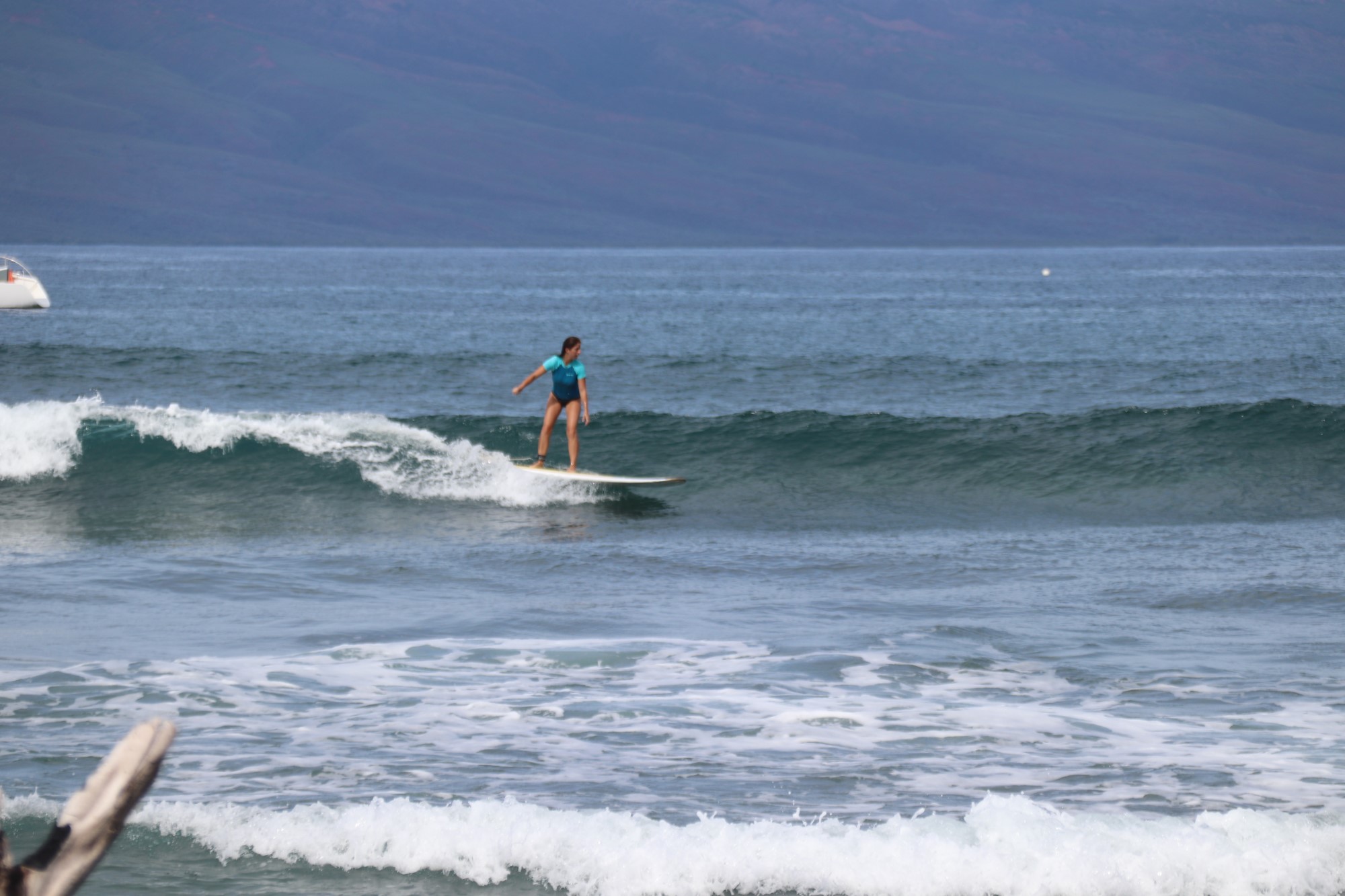
Julia Colangelo: Of course. So you can find me at Dr. Julia Colangelo on Instagram, on all of these different media platforms. My website is juliacolangelo.com, and findflowtoday.com as well as more around connecting, coaching, consulting. And recently, just a few months ago, as part of me stretching my flow channel, I started a podcast called Flow Surfers where I talk about flow and the intersection of surfing, positive psychology, social justice, and the episodes are very short and provide just practical strategies to finding more flow in and out of the surf. So this, again, to live with more ease and intentionality in our relationships and businesses. So you can check that out if you want to learn more about Flow.
Imi Barneaud: We’ll put all these links in the show notes of the episode so that people can connect with you later on. But Julia, I guess we’re almost reaching the end. I used to have four questions that I love to ask my guests at the end. Totally intuitive. It’s sentences that you finish. So are you up for that?
Julia Colangelo: Yes. I love that.
Imi Barneaud: Okay. So the first sentence is I LOVE.
Julia Colangelo: Life.
Imi Barneaud: I MISS.
Julia Colangelo: Family.
Imi Barneaud: I WISH.
Julia Colangelo: That everyone could surf everyday.
Imi Barneaud: And the last one is I WANT.
Julia Colangelo: More positive ripples in the world.
Imi Barneaud: Wonderful. That’s a lovely way to conclude this interview. And Julia, thank you ever so much for being my guest today and hope to meet up with you soon to maybe talk about your new projects. What’s the next step for you?
Julia Colangelo: Next steps include really intentional time with my family. I have an 18 month old, and just being a present parent is something I never thought I could do as much as I’m able to, and I’m so grateful for this. Continuing time with family, and really stretching my capacity with surfing, I’ve written and worked on the publication track, and just continuing to consult with organizations, companies, and individuals to activate their creative thinking and access their genius zone by living in flow. And again, creating that positive change, creating more positive connections in the world. It’s been such a pleasure being here, and I really hope to meet with you and surf with you when it’s safe and possible to do so.
Imi Barneaud: Oh, that was absolute pleasure. Take care, Julia. Thank you ever so much for being my guest today. See you.
Julia Colangelo: Oh, thank you so much.
That was one conversation, I’m expecting for the second interview in the near future to dive deeper into this topic. I really hope you enjoyed this part of the episode. And I guess to go any further, you can connect with Julia and organize your own flow coaching. You could skip over to her website, it’s juliacolangelo.com and book a session. You can also listen to our podcast, Flow Surfers Podcast, and links to it are in the show notes. In fact, you’ll find all the socials in the show notes too. So to read them, just look them up on your phone app or skip over to theoceanriderspodcast.com.
I forgot to mention in the intro, but you can also help me with my podcast by rating and reviewing on Apple podcasts, that helps increase my ranking and helps people find the podcast easier. Anyway, I guess that’s a wrap. Thank you, Julia, for being my guest today. And thank you guys for listening. I really appreciate it. Anyway, that said, take care, have fun and enjoy the waves.
Ciao.